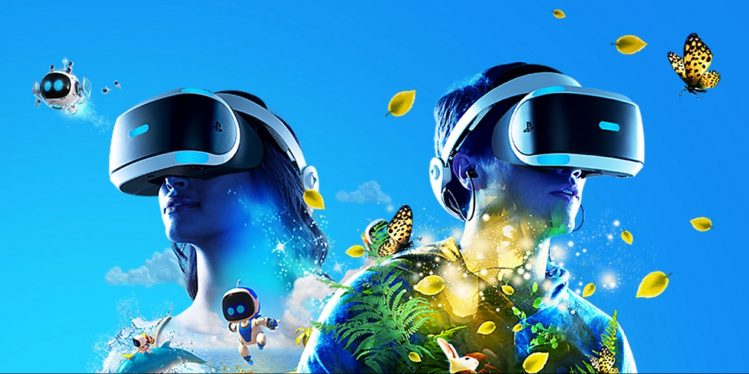Virtual reality is either an important, transformative technology or a niche innovation that’s destined to be subsumed into “mixed reality” — no one’s quite sure yet. But two of the industry’s biggest players are now taking opposing positions on the subject, as executives from Microsoft and Sony have shared thoughts on whether users are actually interested in VR, and fans are weighing in with their own views.
The flashpoint was a comment from Microsoft’s Xbox chief Phil Spencer, who reportedly downplayed VR as an “isolating” experience, and said that “nobody’s asking for VR” — at least, from his customer base. “The vast majority of our customers know if they want a VR experience, there’s places to go get those,” he explained, though he also said “nobody’s selling millions and millions” of VR headsets. For these reasons, the company isn’t planning to support VR on its next Xbox console, codenamed Project Scarlett.
Spencer’s take apparently didn’t sit well with Sony’s Shuhei Yoshida, who led the company’s worldwide studios through much of the growth of PlayStation VR — a headset that has, in fact, sold well over 4 million units. This morning, Yoshida tweeted that “we oftentimes work hard to make things that no customers are asking for,” a fairly gentle retort that recalls the supposed quote from car pioneer Henry Ford, “if I had asked people what they wanted, they would have said faster horses.”
On one hand, the companies’ respective positions are hardly a surprise at this point. Microsoft has placed its largest mixed reality bets on AR, releasing two Hololens headsets — solely for enterprise customers — while providing lukewarm support for Windows VR, and killing a nascent VR initiative for the Xbox One X. By contrast, Sony completely embraced VR for both its current- and next-generation PlayStation consoles. The company has promised that the existing PlayStation VR and its software will work on the new console, as well as teasing a next-generation VR headset for release after the PlayStation 5’s 2020 launch window.
The easiest way to square Spencer’s comments with reality is a literal but properly in-context interpretation of his words. He wasn’t necessarily saying that no one wanted VR — just not Xbox customers. And although his claim about “millions and millions” of headsets is inaccurate for Sony, it’s true about Microsoft’s Windows Mixed Reality platform, which opened PCs to any company interested in creating a VR headset. So many headsets were released as a consequence that consumers didn’t gravitate to just one model, leading virtually every company to fall short of the multi-million mark.
Judging by responses on social media, VR fans aren’t pleased with Spencer’s take. Many of the replies to Yoshida’s tweet are praising Sony for having taken risks with virtual reality, and saying that regardless of consumer interest, PSVR “sparked an interest” in VR that will pay off in the next generation. “I’m asking for it and millions of others are,” said @JRPyznar. “VR is going to storm the gates next gen and Sony already has a massive foundation.”
Tweets directed at Spencer’s “nobody’s asking” claim express similar sentiments. “How can you look at the data and say that?” asks @Slashim. “Have you not seen Oculus rise over the last decade? It’s the next frontier.” And numerous others are undercutting the suggestion that Xbox fans don’t want VR. “While I’m still getting the Scarlett, this is really frustrating,” says @iN7trepid. “I’m definitely one of those ‘nobodies’ who wants VR on my Xbox.”
But not everyone disagrees with the Xbox head’s views. Some Xbox fan tweets have written off VR as unappealing or impractically priced for the console market. Similarly, Redditors on r/Xboxone are generally lining up behind Spencer, though there are some dissenters — and one commenter who reminds us that “Reddit is not a good indication for the mass market.”
Regardless, it appears that Sony will have the console VR market largely to itself in the upcoming generation — unless, of course, Nintendo opts to take its VR efforts beyond the experimental (and largely mediocre) Labo VR to a better level in the future. Thus far, the demand for VR hardware has depended considerably on compelling VR games, a point reinforced by the heightened interest in PC VR following the announcement of Half-Life: Alyx, so if Valve’s title gets people to buy VR headsets, perhaps that will be enough to change Microsoft’s mind.

